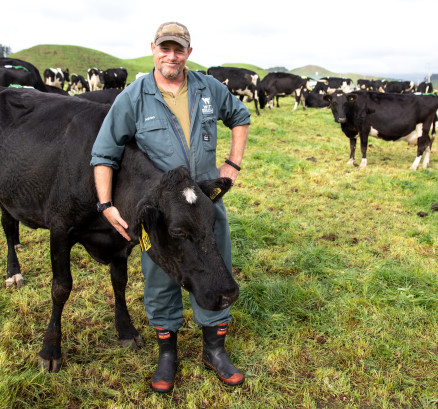Fencing to farm bikes - safety focus for primary short courses
WITT’s fencing course may be preceded with the word ‘basic’. But even learning the ‘basics’ of fencing can prevent death and mayhem from livestock escaping onto a road.
‘Basic Fencing’ is one of the short courses relating to rural lifestyles and farming that WITT has launched this year, along with courses on the safe use of chainsaws, tractors, quad bikes, and LUVs (light utility vehicles).
Course tutor and farming expert Adrian Edser says the fencing short course is aimed at people on smaller farms and lifestyle blocks who want to build or repair fences themselves. It’s also perfect for people who want to learn practical skills to work on a farm or with a fencing contractor.
Secure, stable fencing is about safety – on the farm and for motorists, he adds. “Worst case scenario – your cows get out on the road, cause an accident and kill someone. And your cows end up dead as well. No one wants that.”
Adrian says that fencing has come a long way from timber posts and the number 8 wire. “Now we have electronic or virtual fencing, with smart collars on cows. You can draw a fence on an app on your phone and the cows won’t walk over it.”
While ‘invisible’ electronically controlled fences are a game-changer, they are mainly suited to large scale commercial operations and can be costly for small holdings.
And that’s why there is still a need to know how to put up a basic, run-of-the-mill but still highly effective conventional fence, Adrian says.

Farm classroom for hands-on learning
Courses take place at Grassmere training farm in Egmont village, which Adrian says is “one of the best in education” with a dedicated classroom and workshop, and equipment such as chainsaws, tractor, quad bike available for course participants to learn practical skills.
“Anyone signing up to do these courses, it’s not far to go out there.”
Chainsaw safety is the next course, scheduled for May 29. Participants learn how to handle different types of cuts with ease, from trimming branches, basic up and down cuts, and bore cuts. They also discover how to keep a chainsaw in peak condition.
“From routine cleaning to sharpening and adjusting the chain, you'll gain the skills needed to prolong the life of your equipment and keep it running smoothly,” says Adrian.
Learning how to correctly operate and maintain all farm machinery and vehicles is vital from a health and safety perspective, and helps keep costs down, he adds.
As well as rural life stylers and small farm owners, the courses are also relevant to conservation workers, landscape gardeners, employees in construction, forestry, and outdoor industries, as well as supervisors and safety officers looking to create a safer work environment.
For more information and to apply, check here:
Captions: Basic fencing is a core skill for people living rurally, either on lifestyle blocks or small farms, and (below) WITT tutor and farm expert Adrian Edser.